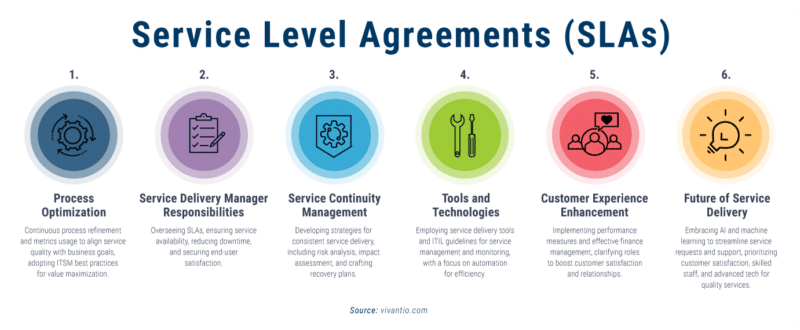Cette entreprise n'a pas de postes à pourvoir
0 Avis
Noter cette Entreprise (Pas d'avis pour l'instant)
About Us
Outsourcing Payroll: Maximize Efficiency And Minimize Expenses

✔ Outsourcing payroll may minimize administrative problems, conserve time, and guarantee compliance with tax laws.
✔ Cost cost savings vary from 18%-35% typically compared to in-house payroll processing.
✔ Payroll providers manage wage calculations, tax filings, direct deposits, advantages deductions, and more.
✔ Businesses of all sizes advantage, specifically those without dedicated payroll staff.
✔ Choosing the ideal payroll service depends on company size, complexity, and require for integration with existing systems.

Every other Friday, Lisa braced herself for what had basically end up being a constant source of stress: payroll. As the office manager for a growing home services business, she wore many hats: scheduling jobs, managing invoices, handling HR tasks, and more. Payroll was just another duty on her overruning plate, and regardless of her best shots, something always appeared to go incorrect.

Last pay period, she overlooked overtime for 2 professionals, causing a payroll correction that took hours to repair. The month in the past, a tax filing deadline slipped through the fractures, leading to an expensive late cost. And then there were the consistent questions from staff members about their incomes – was my bonus consisted of? Why are my reductions various this week? Exists still time to correct my punch card? When will I receive my W-2?
Lisa’s tension level was through the roofing. Something had to alter. Accordingly, Lisa began exploring her options. What if the company had somebody else manage payroll? By handing off payroll to an expert service provider, or, at least, upgrading their software, she might eliminate the risk of errors, guarantee compliance with tax laws, and complimentary up hours weekly to focus on running business.
Does your payroll journey simulate Lisa’s? Is payroll a barrier that looms at the end of every other week? Luckily, you’re not alone. In this post, we’ll explore how contracting out payroll works, the advantages it uses, and whether it’s the ideal relocation for your business.
Outsourcing payroll is the practice of handing off payroll-related tasks to a third-party service provider who focuses on processing salaries, taxes, and other compensation-related responsibilities. Instead of managing payroll manually – or juggling multiple software options – companies can count on specialists to ensure workers are paid correctly and on time while staying compliant with tax laws.
Payroll suppliers handle a series of jobs, consisting of:
✅ Processing employee earnings and specialist payments;
✅ Calculating and submitting payroll taxes;
✅ Managing direct deposits and paper checks;
✅ Handling reductions, garnishments, and benefits contributions; and
✅ Keeping up to date with ever-changing labor laws and tax rates.
Approximately 61% of companies outsource their payroll procedures. The choice to contract out the entire function or sector out parts, such as tax filings or direct deposit management, largely depends on business size, payroll complexity, and internal resources.

For bigger organizations with employees across numerous states, payroll outsourcing can streamline compliance with various tax laws and guidelines. But little and mid-sized services likewise benefit – specifically those without a devoted payroll expert. Given that payroll laws often change, outsourcing guarantees businesses stay certified without having to constantly keep track of updates.
Years earlier, it was unprecedented for companies to turn over payroll to an outdoors supplier. But today, advances in payroll innovation make contracting out a cost-efficient and efficient solution. Whether you need full-service payroll support or simply assist with particular tasks, outsourcing can maximize important time, lower administrative headaches, and provide entrepreneur assurance. Statistics back this up. According to a PwC research study, companies that outsource their payroll works experience expense reductions of 18%-35%, usually.
Is contracting out payroll the best option for your company? In the next section, we’ll check out the crucial benefits and prospective downsides to assist you decide. If not, a finest practice might include updating your internal software. While we’re prejudiced, an option like OnTheClock allows you to encapsulate time tracking, scheduling, and payroll in one platform. No more third-party costs, hold-ups, or errors!
Don’t let taxes get you down. Make payroll simple with OnTheClock!
Your trouble-free service for payroll.
The Benefits of Outsourcing Payroll
Having your personnel total payroll might look like a cost-savings step; however, the reality is that it’s often time-consuming, complex, and susceptible to pricey mistakes. Outsourcing payroll provides companies a streamlined, safe and secure, and affordable solution. Here’s how it can benefit your business:
Save Time and Boost Productivity: Payroll isn’t almost transferring revenue – it includes tracking hours, calculating taxes, handling benefits reductions, and ensuring compliance with ever-changing regulations. For small companies, this responsibility often falls on a single individual or a small HR group, pulling focus far from tactical initiatives. Outsourcing payroll removes these time-consuming jobs, maximizing your team to focus on growth and worker engagement.
Reduce Payroll Costs: Many little and mid-sized businesses discover that contracting out payroll is more cost-efficient than preserving an internal payroll group. The costs related to payroll software application, staff member training, tax filing, and compliance management can accumulate quickly. By outsourcing, companies can access expert payroll services at a predictable month-to-month cost – typically less than the expenditure of working with a full-time payroll expert.
Minimize Errors and Ensure Compliance: Payroll errors aren’t simply discouraging – they can lead to significant monetary charges. From overlooking tax withholdings to missing out on due dates, mistakes can activate audits, fines, and dissatisfied workers. Payroll companies concentrate on tax compliance, keeping up to date on federal, state, and local policies to ensure precise filings and timely payments.
Enhance Data Security: Payroll information consists of sensitive staff member details, such as Social Security numbers and savings account information. Cybersecurity hazards and internal fraud risks make payroll security a leading concern. Professional payroll service providers buy sophisticated encryption, protected cloud storage, and multifactor authentication to keep your company’s monetary data safe.
Avoid Payroll Disruptions: If your in-house payroll professional takes a holiday, gets ill, or leaves the company, payroll operations can be tossed into chaos. Outsourcing offers connection and dependability, guaranteeing payroll is processed accurately and on time, each time.
Simplify Direct Deposit and Benefits Integration: Many small companies battle to set up direct deposit or effectively incorporate payroll with benefits administration. Payroll service providers simplify this procedure, guaranteeing staff members are paid immediately and reductions for benefits like medical insurance and retirement strategies are handled correctly.
Scale With Your Business: As your company grows, payroll complexity boosts. More employees suggest more tax responsibilities, advantage options, and compliance requirements. A payroll company can scale with your business, adapting to new difficulties without needing you to employ additional HR workers.
The Downsides of Outsourcing Payroll
While contracting out payroll can save time and decrease administrative concerns, it’s not without its difficulties. Before dedicating to an external supplier, it’s necessary to weigh the possible disadvantages and figure out whether the trade-offs line up with your service’s requirements.
Loss of Control Over Payroll Processes: When you contract out payroll, you relinquish direct oversight of crucial payroll functions. While automation and devoted payroll specialists can minimize errors, you may have restricted visibility into the process. If an error takes place, such as an inaccurate income or a missed tax filing, it could take longer to deal with than if payroll were managed internal. Additionally, you might need to count on consumer support groups with differing levels of responsiveness instead of making immediate modifications yourself.
Data Security Concerns: Outsourcing needs sharing delicate staff member details, including Social Security numbers, wages, and tax information, with a 3rd celebration. While the majority of payroll providers implement robust security measures, data breaches remain a threat. Additionally, since you do not manage their security procedures, you’re relying on their capability to secure employee information. Any lapse in security could lead to identity theft, compliance problems, or monetary losses.
Limited Customization and Flexibility: Payroll providers generally offer standardized services that may not perfectly line up with your business’s needs. If your service has unique payroll structures, such as customized bonus offers, commissions, or industry-specific reductions, adapting to a third-party system can be challenging. Furthermore, last-minute payroll adjustments, such as including an expense compensation or correcting a tax code, might not be as smooth as they would be with an in-house payroll group.
Potential Hidden Costs: While outsourcing can seem affordable, expenses can include up beyond the base membership cost. Some suppliers charge additional for year-end tax filings, compliance updates, off-cycle payroll runs, or integration with other service software. If your business requires regular payroll modifications or customized reporting, these extra costs can rapidly surpass the initial budget. Employee Experience Challenges: When payroll is contracted out, workers often need to get in touch with a third-party provider for payroll-related concerns or problems. This can develop a disconnect, as employees might deal with impersonal customer care, long wait times, or inconsistent assistance quality. Unlike an internal payroll group that comprehends business culture and policies, an outsourced provider might not use the exact same level of familiarity or responsiveness.
Dependency on Provider Stability: Counting on an external company for payroll implies your organization is vulnerable to its operational stability. If the company experiences monetary difficulty, technical failures, or unexpected service interruptions, your payroll process might be affected. In severe cases, a supplier shutting down suddenly could cause lost payroll data and significant operational headaches.
The Different Types of Payroll Services
Not all payroll outsourcing services are developed equivalent. Businesses have various requirements, and payroll suppliers offer various levels of service to accommodate them. Whether you desire to hand off whatever or maintain some control, there’s an outsourcing model that fits your business. Here are the primary kinds of outsourced payroll services:
1. Full-Service Payroll Outsourcing: If you’re looking for a totally hands-off approach, full-service payroll outsourcing is the way to go. This type of company manages every element of payroll, including:
– Calculating wages and reductions;
– Managing tax filings and compliance;
– Administering worker benefits; and
– Handling direct deposits and incomes.
With a full-service company, all you need to do is supply employee data, such as hours worked and wage updates. While this choice is the most convenient, it likewise tends to be the most expensive. Plus, companies need a reliable system for sharing accurate payroll details on time.
2. Partial Payroll Outsourcing: For services that prefer to retain some control over payroll however offload complex jobs, partial outsourcing is an excellent happy medium. Companies might select to:
– Manage worker time tracking and participation in-house while outsourcing tax filing;
– Handle direct deposit themselves but contract out compliance and reporting; and
– Keep payroll processing internal but utilize an external service for year-end tax return.
This design permits business to lower their administrative burden while preserving oversight on critical payroll functions.
3. Cloud-Based Payroll Services: Cloud-based payroll outsourcing offers versatility and real-time access to payroll information. These services:
– Automate payroll calculations and tax filings;
– Allow staff members to gain access to pay stubs and tax files through self-service portals; and
– Integrate with accounting and HR software application.
Since cloud payroll options are web-based, services can handle payroll from anywhere. This alternative is ideal for remote groups and growing companies that require scalability.
4. International Payroll Outsourcing: For companies with an international labor force, global payroll suppliers streamline the complexities of managing workers across various countries. These services:
– Ensure compliance with local tax laws and labor policies;
– Handle multi-currency payroll processing; and
– Manage cross-border payroll tax filings.
Outsourcing global payroll can prevent pricey compliance mistakes while improving payments for overseas employees.
5. DIY Payroll with Provider Support: Some payroll companies use a hybrid approach where businesses manage the majority of payroll jobs however use software and tools provided by the outsourcing business. This model is perfect for business that:
– Wish to maintain direct control over payroll processing;
– Need automation tools to streamline computations; and
– Prefer specialist assistance for compliance questions.
This approach combines the versatility of in-house payroll with the security of expert assistance.
How to Choose the Proper Payroll Partner
The ideal payroll service depends on your company’s size, structure, and needs. If you desire a completely hassle-free experience, full-service outsourcing may be the very best option. If you need flexibility, partial or cloud-based services might be a much better fit. Here’s a list of actions you must think about when selecting the perfect payroll supplier.
Define Your Payroll Needs: Before comparing providers, summary precisely what you require from a payroll service. Are you searching for full-service payroll that manages whatever, or do you choose partial payroll contracting out where you retain control over certain jobs? Consider features like direct deposit, tax filing, advantages administration, and compliance tracking. If your business runs in multiple places or utilizes remote employees, you may likewise need multistate or worldwide payroll abilities.
Integration with Existing Tools: A seamless payroll process depends upon how well your payroll service provider integrates with your existing systems. Try to find options that get in touch with your scheduling software application, HR platforms, and time tracking tools. Proper combination can minimize manual information entry, lessen errors, and improve overall efficiency.
Compliance and Tax Expertise: Payroll is more than simply paying workers – it includes tax filings, deductions, and compliance with labor laws. A dependable payroll partner must keep up to date with modifications in tax policies and guarantee precise reporting to avoid pricey penalties. Ask potential companies about their compliance procedures and how they manage updates to federal, state, and regional tax laws.
Pricing Structure and Value: Cost is a major element when picking a payroll provider, however the cheapest option isn’t constantly the finest. Compare pricing designs, as some providers charge a flat monthly charge, while others expense per pay duration or per employee. Many payroll solutions, including OnTheClock Payroll, tend to be around $40 each month and $6 per employee. Be sure to represent any extra costs for tax filings, direct deposits, or HR add-ons. The very best payroll partner uses a balance of price and worth, conserving you time and reducing payroll-related headaches.
Customer Support and Service Quality: Payroll mistakes can be demanding, so having access to responsive customer assistance is necessary. Evaluate the provider’s service alternatives: Do they provide live phone assistance, chat, or e-mail assistance? Check online evaluations and testimonials to assess their credibility for customer service. A payroll partner with strong support can quickly deal with problems and keep payroll running efficiently.
Security and Data Protection: Payroll information consists of sensitive worker info, making security a top priority. Ensure your payroll supplier uses strong file encryption, multi-factor authentication, and secure servers to secure versus cyber hazards. Inquire about their information backup policies and how they handle security breaches.
Scalability and Flexibility: Your payroll requirements may develop as your organization grows. Choose a supplier that can scale with you, whether you’re adding new workers, expanding to numerous places, or requiring extra functions like benefits management or time tracking. A flexible payroll partner will accommodate modifications without requiring a major overhaul of your payroll procedure.
Service Level Agreements (SLAs): A credible payroll company need to offer clear service level agreements (SLAs) that lay out essential efficiency expectations, such as payroll precision, processing times, and compliance warranties. These arrangements help guarantee accountability and offer a standard for assessing service quality.
Reputation and Industry Experience: Finally, research study the service provider’s track record. Try to find client reviews, industry accreditations, and case studies that demonstrate their knowledge. If possible, pick a payroll partner with experience in your market, as they’ll recognize with sector-specific payroll requirements and compliance obstacles.
Outsourcing Payroll: Common Challenges and Best Practices
Outsourcing payroll can be a game-changer for organizations, lowering administrative work, improving accuracy, and ensuring compliance. However, turning over such an important function features its own set of obstacles. If not handled properly, companies can deal with communication breakdowns, security risks, and compliance issues. Below are some common difficulties companies encounter when contracting out payroll and some actions to assist conquer them.
Loss of Control Over Payroll Processes
When you outsource payroll, you give up direct oversight of payroll computations, tax filings, and staff member payments. This can result in issues about transparency, accuracy, and responsiveness.
– Choose a company that uses real-time reporting and payroll dashboards so you can keep track of transactions.
– Establish clear expectations from the beginning, including deadlines, data precision requirements, and escalation procedures.
– Maintain internal payroll proficiency to evaluate reports and ensure payroll accuracy.
Communication Breakdowns
An absence of appropriate interaction between your business and the payroll provider can lead to mistakes, hold-ups, and aggravation. Misunderstandings about data submissions, reporting requirements, and employee classifications can cause substantial disruptions.
– Designate a devoted point of contact on both sides to guarantee smooth interaction.
– Set up regular check-ins to review payroll processes, resolve issues, and supply updates.
– Use cloud-based payroll platforms that enable real-time access to reports and automated notices.
Data Security and Privacy Risks
Payroll data consists of extremely sensitive employee info, including Social Security numbers, bank information, and salary records. A security breach can result in identity theft, monetary fraud, and legal liabilities.
– Work with a company that utilizes advanced file encryption, multifactor authentication, and protected information storage.
– Limit access to payroll information by defining user roles and authorizations within the system.
– Regularly review the service provider’s security policies and need compliance with industry requirements like SOC 2 and GDPR.
Compliance and Regulatory Risks
Payroll laws and tax guidelines often change, and noncompliance can result in substantial fines and charges. If your payroll service provider fails to remain updated, your company could be at threat.
– Partner with a service provider that specializes in your market and is fluent in federal, state, and local tax laws.
– Request regular compliance audits to guarantee payroll tax filings and worker classifications are accurate.
– Maintain internal oversight by staying notified about payroll regulations that impact your business.
Hidden Fees and Unexpected Costs
Some payroll providers charge additional for services like tax filings, compliance updates, and software upgrades. Without a clear understanding of costs, organizations can face spending plan overruns.
– Review the contract thoroughly before finalizing and clarify all costs, including per-payroll costs, year-end reporting charges, and add-on services.
– Choose a supplier with transparent, complete rates to prevent unexpected costs.
– Regularly evaluate whether the payroll service is affordable for your business.
Integration Challenges
If your payroll supplier’s system does not incorporate efficiently with your existing accounting, HR, or time tracking software application, it can lead to inadequacies and manual data entry errors.
How to Overcome It
– Select a company that provides seamless integration with your existing tools, such as QuickBooks or OnTheClock.
– Test the combination before fully transitioning to outsourced payroll to identify prospective problems.
– Work carefully with your supplier to tailor information exports and imports for precision and efficiency.

Final Thoughts

Lisa’s story is all too familiar to lots of entrepreneur and workplace managers. Payroll mistakes, compliance concerns, and consistent disturbances can turn payday into a source of stress instead of an easy process. By contracting out payroll, Lisa took control of her time, lowered mistakes, and guaranteed her group was paid accurately and on time.
If payroll has become a concern for your organization, it might be time to check out a much better service. OnTheClock Payroll simplifies the process, so you can focus on running your business – not stressing over incomes. Ready to simplify payroll? Try OnTheClock Payroll today and let us handle the heavy lifting so that you can concentrate on what matters most: growing your organization!



